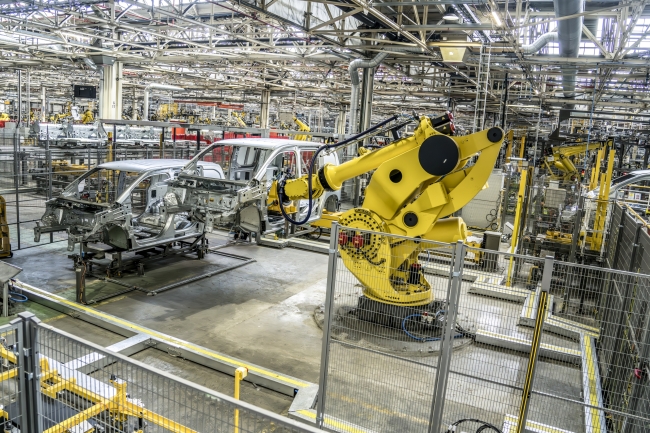2 minute read - 27th November 2024
Stellantis proposes plan to invest £50m at Ellesmere Port factory but close Luton plant with 1,100 job losses
Stellantis has announced the start of a consultation with employees and trade union partners on a proposal to consolidate its UK production of light commercial vehicles (LCV) and create an all-electric, sustainable vehicle hub at its Ellesmere Port site with a £50m investment. The move would result in the closure of its Luton factory and the loss of more than 1,100 jobs.
The proposal, made within the context of the UK’s ZEV mandate, will potentially contribute to greater production efficiency, including additional production of medium-sized battery electric LCVs.
Ellesmere Port is proposed as the new all-electric UK LCV hub to take advantage of UK employees’ expertise on the new line, the site’s footprint, and its proximity to the Green Automotive Hub located at the adjacent Queen Elizabeth II Eastham docks and the recently constructed Stellantis UK parts distribution centre.
Whilst strengthening Ellesmere Port as its LCV hub in the UK, with the transfer of Luton operations, Stellantis says it remains committed to acting responsibly toward its employees in Luton and, if the proposal is approved, it will offer relocation support to facilitate employees wishing to transfer to the Ellesmere Port site with an attractive package, where hundreds of permanent jobs will be created.

Stellantis has proposed a plan to invest £50m at its Ellesmere Port factory but close its Luton plant with the loss of 1,100 jobs / Picture: Stellantis
In 2021, Stellantis invested £100m in Ellesmere Port to transform the facility to battery-electric LCV production, making it the first battery-electric vehicle-dedicated plant globally for Stellantis. Today, it is the UK’s first and only volume EV-only manufacturing facility building the company’s small LCV range of Citroën ë-Berlingo, Vauxhall Combo Electric, Opel Combo Electric, Peugeot E-Partner and Fiat Professional E-Doblo.
Stellantis transformed Ellesmere Port plant with a new body shop, upgraded general assembly, a compression of the site area and the creation of an on-site battery pack assembly. In addition, there is further support to enable a pathway to carbon neutrality for the plant later this decade and the plant aims to be 100% self-sufficient for electricity.

Stellantis has already invested £100m in Ellesmere Port to transform the facility to battery-electric LCV production, making it the first battery-electric vehicle-dedicated plant globally / Picture: Stellantis
For all employees affected, it says dedicated comprehensive job support, including opportunities for retraining, will also be implemented. Stellantis confirmed it will work with local government and local employers to identify new employment opportunities within the Luton area for employees who might be impacted by this proposal if it goes ahead.
The Stellantis statement also said it intends to remain the UK market leader in electric LCVs, with over 32,000 vehicles already sold in the country since launch and will continue to be the only volume manufacturer of LCVs in the UK.